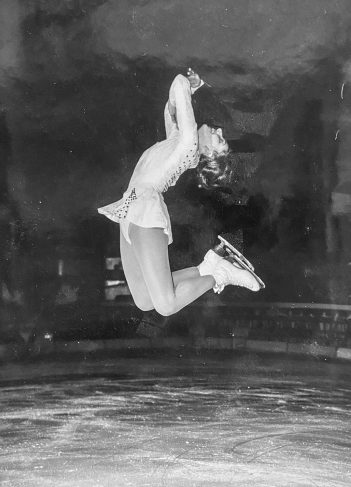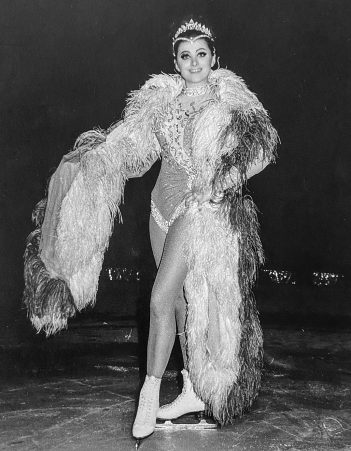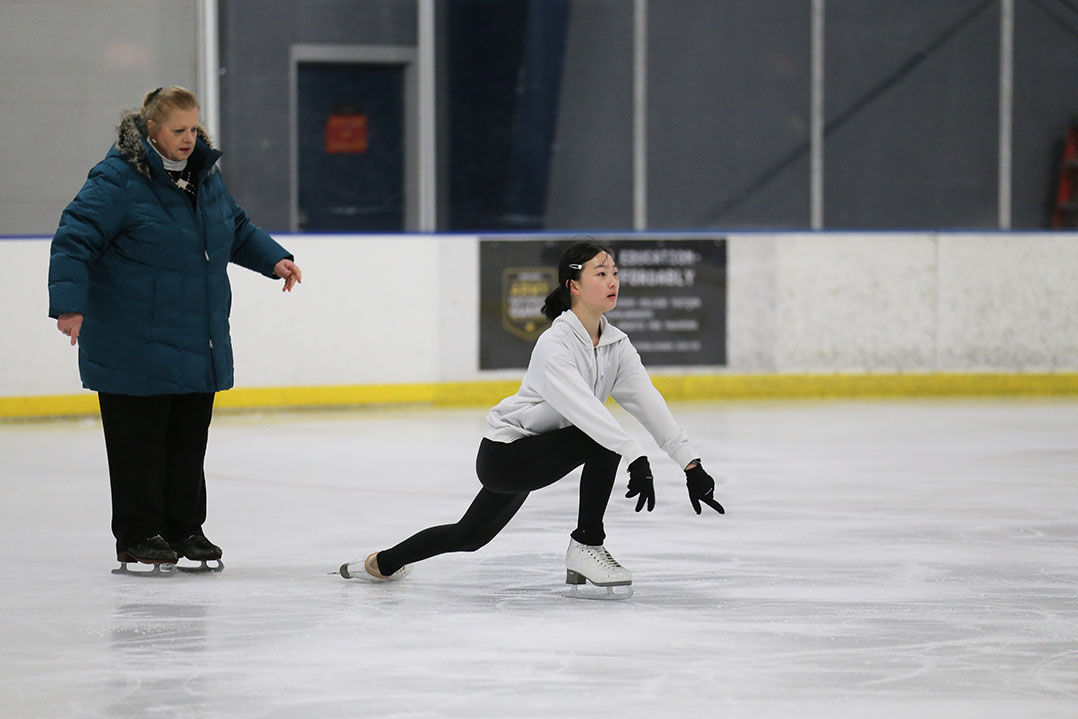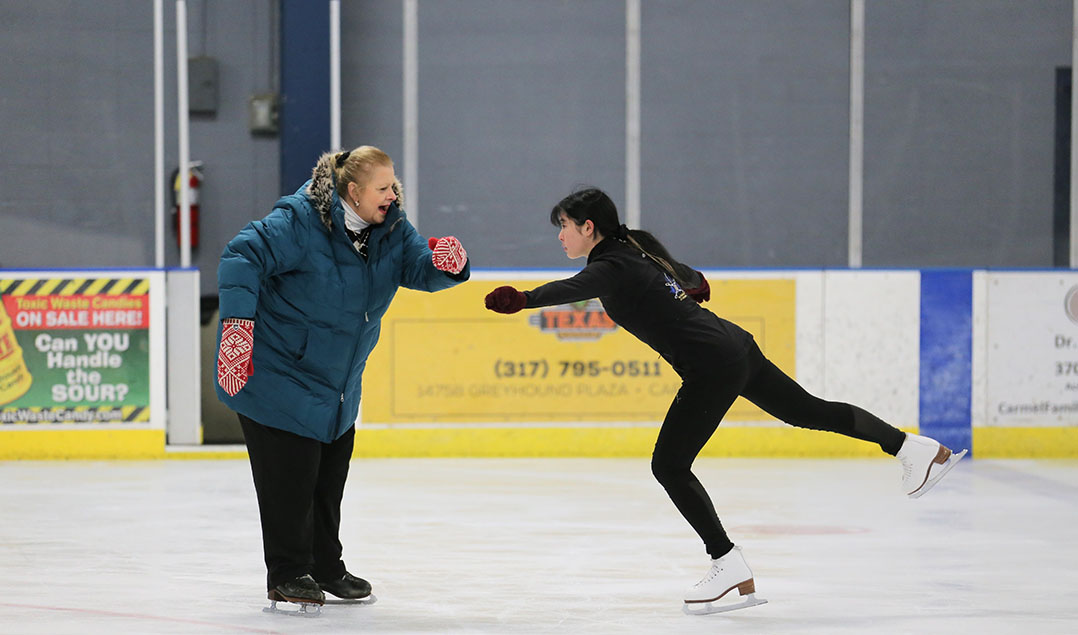At 73, Marie Millikan can’t complete the same jumps, twists and spins she performed as a figure skater at the 1968 Winter Olympics in Grenoble, France, but she can still be found on the ice six days a week in Carmel.
These days, Millikan spends her time at the rink coaching young athletes as director of skating at the Carmel Ice Skadium, where she’s worked since the facility opened in 1974. She arrives before dawn several days a week to work with skaters before the school day begins, returning most afternoons or evenings to coach after school or on Saturdays.
She only recently stopped working Sundays.
“People say, ‘You are 73, you should retire and find a hobby,’” Millikan said. “(They) don’t understand that my job is my hobby, so I don’t mind getting up at 5 a.m. or 4:30 a.m. to open the rink.”
‘The sweat is the sweat’
Millikan was born in Prague, in the former Czechoslovakia, a nation where ice skating was as popular as Little League baseball is in the U.S., she said. So, like most everyone else around her, she learned to skate at a young age.

She didn’t always dream of being an Olympian; rather, she sought to make small improvements each time she took to the ice. By the time the 1964 Winter Olympics rolled around, she realized she might be within reach of making the 1968 Olympic team with enough hard work.
Millikan – then known by her maiden name of Marie Víchová – performed one of the best routines in her life in the Czechoslovakian national competition to make the Olympic team. She headed to the 10th Winter Olympics in Grenoble with fellow Czechoslovakian figure skater Hana Mašková, who earned a bronze medal in the ladies competition. U.S. skater Peggy Flemming captured the gold. Millikan fell short of the podium.
Skating in the Olympics is an experience Millikan will never forget, and it led to lifelong friendships with athletes from around the world.
“It was special, because the Olympics only happen every four years,” she said. “But as far as the individual training and the individual performing, that’s all the same. The sweat is the sweat.”
Soon after competing in the Olympics, Millikan retired from competition and began performing professionally with Holiday on Ice, a touring show still in existence. Millikan’s older daughter, Michelle, later performed with Holiday on Ice before pursuing a career in nursing. Her younger daughter, Melissa, is a researcher at Eli Lilly and Co.
While on tour in Japan, Millikan met an American man who would become her husband, which is what led to her relocating to the U.S. She moved to Carmel in 1975.

‘It’s very liberating’
Millikan, who has a degree in engineering and speaks six languages, has long been passionate about working with young skaters because of the lessons they can learn on and off the ice. The sport teaches them about dedication, handling disappointment and building confidence.
For example, she once heard from the parents of a former student she trained who reported that skills she learned on the ice helped her excel in medical school.
“She had to give a speech in front of a couple hundred people, and she wasn’t afraid,” Millikan said. “She said, ‘I’ve skated in front of 10,000 people all by myself, having a chance of falling on my face any second, so talking in front of people is nothing.’”
Grace Nie, a Carmel High School freshman who trains at the Carmel Ice Skadium six days a week, started skating five years ago, and – thanks in part to Millikan – has learned to appreciate many aspects of the sport.
“It’s fun. I like how you can be artistic and have a technical side,” Nie said. “It’s artsy, but also a sport, and it helps you exercise.”
Millikan may not still be able to perform the same routines as her students, but she loves the “freedom of motion” that comes from gliding across the ice as much as she ever has.
“We have ballet dancers being totally jealous of us, because we can move like the ballet dancers, but we have the motion to go with it and (as we) travel across the ice and feel the wind on your face,” Millikan said. “You can express yourself fully with the music and body movement. It’s very liberating.”

The role of an analyst
Marie Millikan only competed in the Olympics in 1968, but she’s attended most of the Winter Games since 1988 – and many other major figure skating competitions – as an analyst for the Associated Press.
Her role includes interviewing athletes, translating, proofreading, writing and helping journalists understand the technical aspects of the sport.
Millikan said she’s retired from covering the Olympics, which she last attended in 2014 in Sochi, Russia, but she still works as an analyst at times covering other major figure skating competitions. She plans to watch the next Winter Olympics, to be held Feb. 4 to 20 in Beijing, China, from the comfort of her home.



